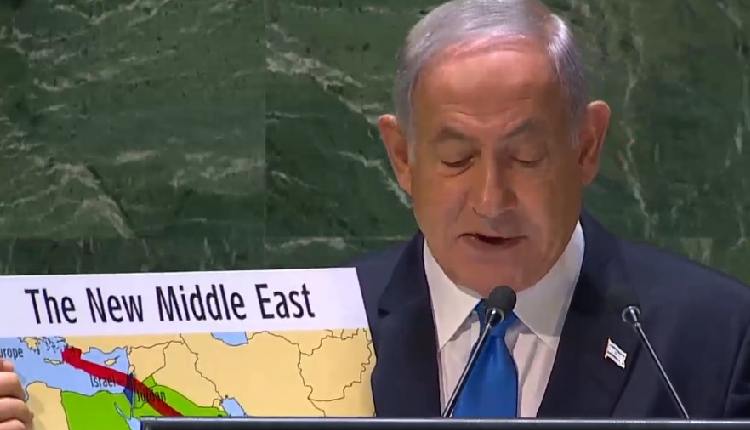
Farah Maraqa was dismissed along with six other Arab employees of Deutsche Welle after being accused of anti-Semitism.
A German court has ruled that the dismissal of Palestinian-Jordanian journalist Farah Maraqa by the German state-owned broadcaster Deutsche Welle (DW) on charges of anti-Semitism was ‘legally unjustified’.
Maraqa’s lawyer, Hauke Rinsdorf, told Al Jazeera that the court on Monday had ordered Deutsche Welle to reinstate Maraqa.
“It’s not just a relief for Farah in the difficult situation Deutsche Welle brought her into, but also a proof for the strength of the rule of law,” Rinsdorf said. “One may see this as an important step to restore Farah’s reputation as a journalist.”
“It is a relief that the judge ruled in Farah’s favour and held Deutsche Welle accountable for this illegal dismissal,” Giovanni Fassina, director of the ELSC, which advocates for the legal rights of Palestinians in Europe, said on Monday in a statement shared with Al Jazeera.
“We hope this sends a clear message that they should stop their censorship practices,” said Fassina, adding that “pushing back – including through legal action – is effective and is a necessity in order to uphold these rights”.
Maraqa was fired along with six other Arab employees of DW last February.
Maraqa sued DW and in July, based on the recommendation of her lawyer, the court said that both parties had to release a joint statement in an effort to rehabilitate Maraqa’s reputation.
The charges against Maraqa arose after an external inquiry that scoured previous articles and social media posts of the former employees – who are all Palestinian or Lebanese – and based its findings on the International Holocaust Remembrance Alliance’s (IHRA) controversial extended definition of anti-Semitism.
The definition, which has been adopted by Germany, has been criticised as a means of silencing pro-Palestinian support and dissent against Israeli policies.
The ELSC, a non-governmental organisation which provides legal assistance to associations, human rights groups, and pro-Palestinian individuals and organisations in Europe, had said earlier that it was “brave and important” that Maraqa had challenged her termination.
“This case is illustrative of a worrying trend in Germany of institutionalised silencing of Palestinian voices and narratives by employing malicious practices,” ELSC told Al Jazeera. “It depicts how the anti-Palestinian sentiment and the institutional use of the IHRA definition can lead to severe infringements upon the freedom of expression and freedom of the press.”
‘Punitive policies’
The DW-commissioned inquiry into Maraqa and her co-accused colleagues was led by former German Justice Minister Sabine Leutheusser-Schnarrenberger and Ahmad Mansour, a Palestinian-German psychologist known for his pro-Israeli views. Mansour says he is an expert on Muslim “radicalisation” and has been accused of Islamophobia.
However, a separate investigation conducted by Euro-Med Monitor found that Maraqa’s articles in question had been taken out of context and that the inquiry itself contained several instances of embracing a pro-Israeli narrative against Palestinians.
According to ELSC, the adoption of the IHRA’s definition of anti-Semitism represents a worrying trend of an institutionalised silencing of Palestinian voices and narratives.
“This is resulting in restrictive and punitive policies against advocates for Palestinian rights, such as lengthy disciplinary proceedings, denial of use of public spaces, cuts in public funding and exclusion from public events and debate,” said Fassina, ELSC’s director.
“Moreover, the IHRA has a much wider ‘chilling effect’ on the right to freedom of expression, by instigating a culture of fear and self-censorship that pre-empts free and democratic debate about the state of Israel and the Palestinian people among society at large,” she said.
‘Unlawful termination’
A former colleague of Maraqa, Maram Salem, has already won her case against DW for unlawful termination.
On July 6, a court ruled that Salem’s dismissal was illegal, and said her Facebook posts were not anti-Semitic.
One of the posts in question had called out the limits of freedom of expression in Europe when it comes to talking about Palestine.
“That was very important [for the judge] to say, as it was very relieving for Maram,” her lawyer, Ahmed Abed, told Al Jazeera.
In the aftermath of the court’s decision in July, Abed released a statement where Salem called on DW to “take responsibility, publicly apologise, and retract the allegations”.
DW will have until mid-September to appeal the court’s decision. It did not respond to requests for comment by the time of publication.







